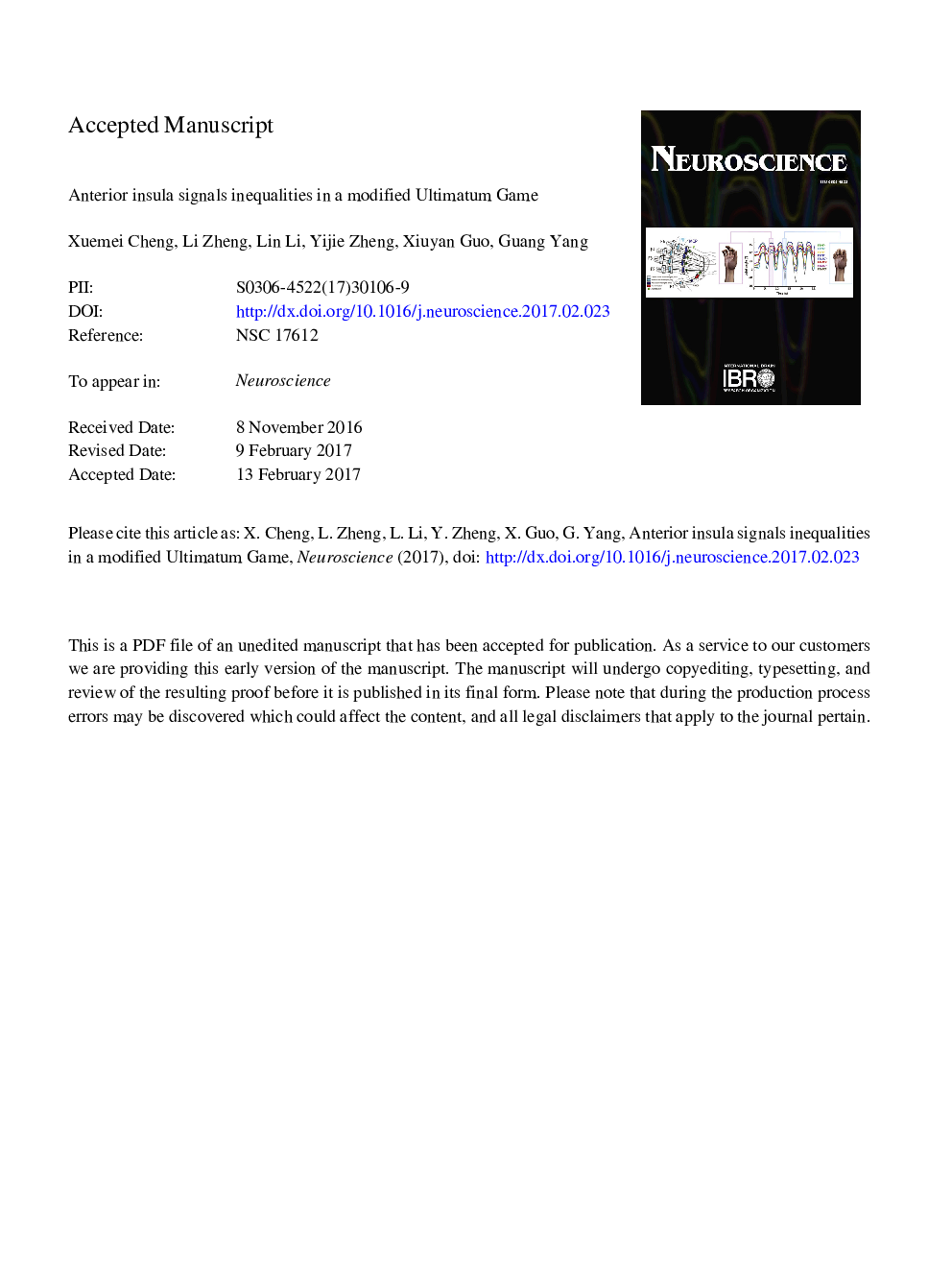| کد مقاله | کد نشریه | سال انتشار | مقاله انگلیسی | نسخه تمام متن |
|---|---|---|---|---|
| 5737780 | 1614728 | 2017 | 20 صفحه PDF | دانلود رایگان |
عنوان انگلیسی مقاله ISI
Anterior insula signals inequalities in a modified Ultimatum Game
دانلود مقاله + سفارش ترجمه
دانلود مقاله ISI انگلیسی
رایگان برای ایرانیان
کلمات کلیدی
موضوعات مرتبط
علوم زیستی و بیوفناوری
علم عصب شناسی
علوم اعصاب (عمومی)
پیش نمایش صفحه اول مقاله

چکیده انگلیسی
Studies employing the Ultimatum Game (UG) which involves two parties (i.e., proposers and responders) splitting some money have suggested the role that anterior insula (AI) plays in detecting fairness norm violation, i.e., violation of the responder's expectation of receiving equal splits from the proposer. In this study, we explored how AI would respond when there existed simultaneously another expectation of being treated equivalently as others. Participants acted as responders and would be informed about both the offers they received and the average amount of money the same proposer offered to others. Hence we introduced different conditions where participants were treated equivalently or not equivalently as other responders in UG. Participants could decide to accept or reject the offer with acceptance leading to the suggested split and rejection leaving both parties nothing. Behavioral results showed that participants rejected more unfair offers and reacted more slowly during acceptance (vs. rejection) of offers when they were offered less than others. At the neural level, stronger AI activation was observed when participants received unfair relative to fair offers, as well as when they received unequal relative to equal offers. Moreover, dorsomedial prefrontal cortex/dorsal anterior cingulate cortex (dmPFC/dACC) exhibited greater activity during receiving unequal (vs. equal) offers and during acceptance (vs. rejection) of offers which were less than others'. Taken together, the present study demonstrated that the treatment of others modulated both behavioral responses to unfairness and neural correlates of the fairness-related decision-making process, and that AI played a general role in detecting norm violations.
ناشر
Database: Elsevier - ScienceDirect (ساینس دایرکت)
Journal: Neuroscience - Volume 348, 21 April 2017, Pages 126-134
Journal: Neuroscience - Volume 348, 21 April 2017, Pages 126-134
نویسندگان
Xuemei Cheng, Li Zheng, Lin Li, Yijie Zheng, Xiuyan Guo, Guang Yang,